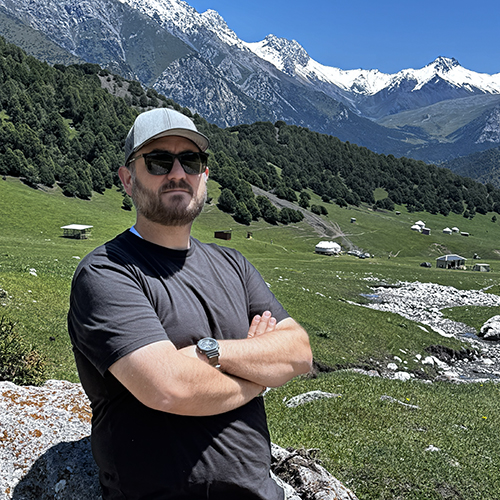A paper published in the Royal Society’s journal Interface explores the effects of seawater on protein-based adhesives produced by marine mussels (bivalve mollusks). According to the study conducted by UW researchers, low pH and oxygen conditions in seawater cause the mussel’s adhesive plaques to weaken.

The work bridges the fields of marine biology and materials science, with promising findings for many industries including biomedicine and aquaculture, that use biological systems as an inspiration for the development of new materials. A better understanding of ideal conditions for mussel adhesives can aid in the design of medical adhesive products used in wet body cavities. Aquaculture farms also rely on strong mussel attachment when the animals are cultured on ropes suspended in coastal water.
The study involved two former UW students, Matthew George and Benjamin Pedigo, as well as UW biology professor Emily Carrington. Penn Cove Shellfish of Coupeville, Washington, the oldest and largest mussel grower in the U.S., partnered in the study. The research was also conducted in association with the UW’s Friday Harbor Laboratories. George, the lead author on the paper, conducted the study as part of his dissertation research at the UW. He’s now a postdoctoral researcher at the Mayo Clinic. Pedigo served as an undergraduate researcher and is now pursuing graduate studies at Johns Hopkins University.
The Royal Society is the oldest scientific academy in continuous existence. The journal Interface explores cross-disciplinary research at the interface between the physical and life sciences.
To learn more about research in UW Biology spanning the forests of Mt. Rainier to the waters of Puget Sound, watch this video.
More Stories

AI in the Classroom? For Faculty, It's Complicated
Three College of Arts & Sciences professors discuss the impact of AI on their teaching and on student learning. The consensus? It’s complicated.

A Sports Obsession Inspires a Career
Thuc Nhi Nguyen got her start the UW Daily. Now she's a sports reporter for Los Angeles Times, writing about the Lakers and the Olympics.

Through Soil Science, an Adventure in Kyrgyzstan
Chemistry PhD alum Jonathan Cox spent most of 2025 in Kyrgyzstan, helping farmers improve their soil—and their crops—through soil testing.